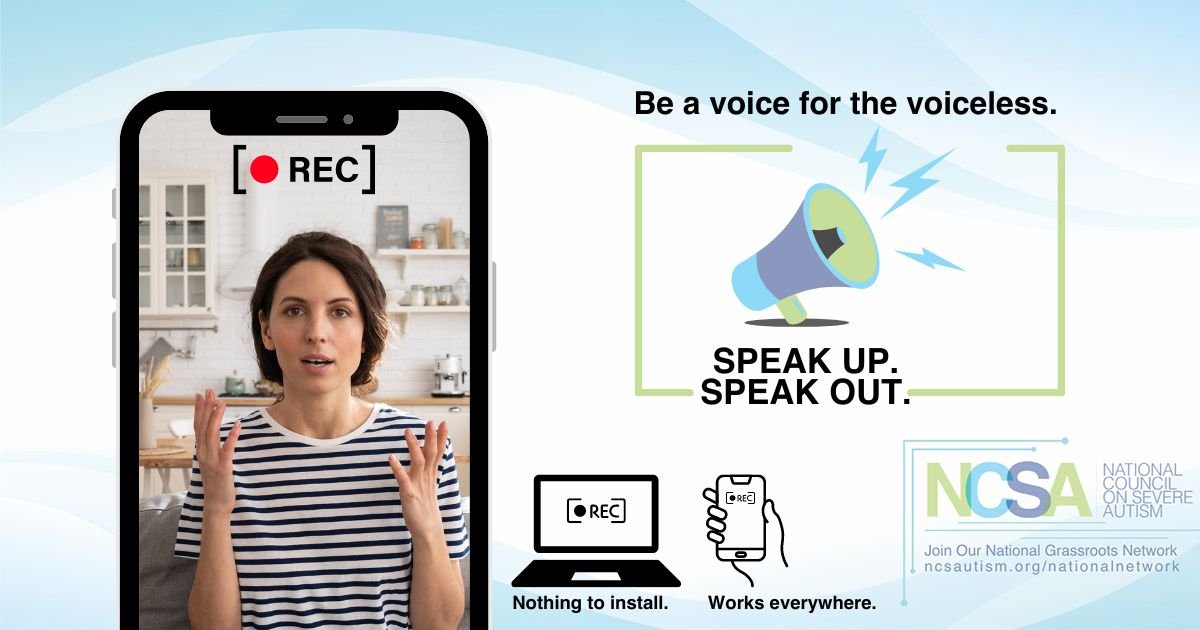What’s a grassroots network anyway? How can it help me? These are valid questions. Let’s talk about it.
When NCSA launched the National Grassroots Network, ironing out the finer details, such as leadership responsibilities, technology infrastructure, and volunteer engagement, took some time. Admittedly, we are still continuing to evolve as the network grows rapidly. A year ago, we had only three emerging state chapters; today, we have 25! The past year has shown me the powerful force that a motivated grassroots movement can be in effecting meaningful change.
We read every comment on the National Council on Severe Autism Facebook page. Browse this sampling:
"There is no village and we need to stop telling parents 'it takes a village.' There isn't one, for families like ours."
"Nobody listens…EVER!"
"The system is broken and failing so many."
"This feels impossible....As I deep dive into the future I’m beyond overwhelmed."
"We have to be indefatigable, because there’s no alternative."
The National Grassroots Network changes the game. To the above, now I say:
Let's be the village we need.
We are listening. Let us help you amplify your message.
Let's develop and implement solutions to resolve systemic issues.
Let's create better tomorrows for our children.
Individuals deserve rest. Let's create an indefatigable organization that lessens the heavy load for its members through the distribution of effort.
Based on my experience, launching the Tennessee chapter became the antidote to state bureaucratic gaslighting. Parents were communicating more freely and finding more of others living in the same circumstances. When the waiver administrators would tell a parent one thing, another parent would share something they were told in total contrast. Empowered parents started to find their voices and their courage. The battles with the state are the greatest stressor for exhausted families, but they gain strength in one another. They’re no longer alone. They participated in webinars to publicly share the inequities their families endured. They detailed the continuing struggles with a system working exactly as it was designed – to make the state uninhabitable to the "unsolvable" people with high-acuity care needs due to behavior symptoms of conditions like severe forms of autism and related disorders.
Families organized, strategized, and shared information. At this point, they have become a full-fledged revolution of families, providers, and allies standing in dissent against the system that overpromised and never delivered. Are there still problems? Yes, so so many. However, there has been more progress this past year for this population than we have seen in years past. Collectively, these voices can not be ignored.
Families in Tennessee are getting safety equipment through behavioral health parity such as custom transport chairs, vehicle partitions, and safety harness booster seats. (Pre-register for our August 14th webinar for a surprise you’ll love related to that.) The state has added an e-badge academy to enhance training for DSPs to include training in specialty skills such as crisis intervention. The statewide planning and policy council now holds a monthly workgroup dedicated to behavioral health. The east planning and policy council holds one dedicated to caregiver & high-acuity service gaps. The meetings are virtual and open to the public to participate. TennCare has made several recent changes in response to the uprising of the well-informed collective voices of citizens who have had enough of watching people in need of high levels of support be isolated and segregated without access to medically necessary and person-centered services.
And through the growth of the National Grassroots Network, this energy and impact is not confined to just one state. With each new chapter, we are seeing the momentum build even stronger. I am so hopeful for the future, despite being utterly terrified of the present for my daughter. We have a way out of this mess now. The grassroots network is putting the unmet needs of our population front and center at decision-making tables that matter.
“I am so proud to join this team and never felt more empowered with having this amazing organization’s support to help create changes in NY state.”
These citizens are no longer accepting what they can't change. They are changing what they refuse to accept. That is what a grassroots movement is all about.
If you are in a state with a chapter, join and engage. Ask your state chair how you can help. Each state chair is seeking additional members who would like to assist in a leadership role. If your state does not yet have a chair and you would like to be considered, please apply.
To every person who has been affected by severe forms of autism, we urge you to take three minutes today to record your message here. If you're tired of hearing terms like "martyr mom" or only seeing "The Good Doctor" represent the spectrum, you hold the key to a more inclusive narrative. Please engage in the process and simply represent your authentic self.
You deserve to be heard. We're listening, and we are standing ready to amplify your voice. We just need you to use it. Speak up. Speak out.
Click image to record your responses. www.ncsautism.org/voice
And if all that didn’t motivate you to engage, have a look at another unrelated grassroots movement for some inspiration, People for Portland. They used videos like we are offering to you, resulting in monumental changes – flipping their local government debates from defunding to reinvesting in programs they wanted, ending policies they advocated harmed vulnerable populations, and putting their policies at the center of political debate.
Together, we can end discrimination against severe and profound autism.





